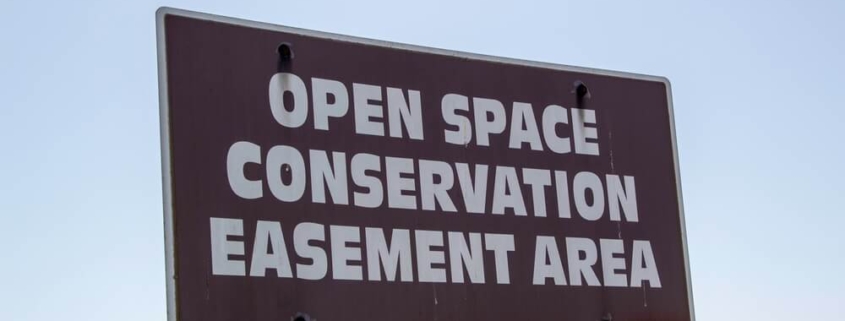Conservation Easements in California
Conservation easement refers to a voluntary agreement that places permanent restrictions on the use of a specific land for protecting its conservation values. Owners continue to control the piece of land by placing a conservation easement on it. While they can also take advantage of a tax deduction, they cannot usually develop it. The limits of conservation easement continue even when the land gets sold in a sale or passed on to an heir.
It’s best to consult with a real estate attorney in California to identify the right legal steps that will help accomplish your end goals regarding your property.
Everyone Doesn’t Qualify for Conservation Easement
Everyone cannot take advantage of a conservation easement. You can probably get a conservation easement if you meet any of the following four categories found in the IRS Code, Section 1.170A-14(d):
- Preservation of a relatively natural habitat of fish, plants, or wildlife.
- Preservation of agricultural lands or forests with open spaces.
- Allowing public access to a portion of the land.
- Protecting the property as per a clearly delineated government policy regarding local open-space plans.
Conservation easements are required to provide public benefits.
Tax Deduction on Conservation Easement
The primary benefit of a conservation easement is the tax deduction you will receive from it. You can deduct 50% of your income for the next 16 years until the appraised value of the easement. This means that if you make $60,000 a year, you can obtain a tax deduction of $30,000 for the next 16 years, which can amount to a total deduction of $480,000. Pertaining to this, this deduction is only up to the amount of appraised value of the easement.
Customizing a Conservation Easement
Conservation easements can be customized to meet your needs, depending on your plans for the property. The goal of an easement is to benefit everyone – the owner, the land trust, and the government agency.
Public Access Is Not Mandatory
While a few landowners choose public access as a condition of the conservation easement, this is a rare process. If you are worried about public access, you should know that this is not a requirement of the conservation easement. In other words, your land remains private property. By placing a conservation easement, you forego your development rights and prevent future development on the land you own.
Government Does Not Get Automatic Access
A conservation easement will not give the government direct access to your land. Most conservation easements are held by non-profit land trusts. These are designated by the IRS under section 501(c)(3).
These organizations play a role similar to tax-exempt companies and NGOs. In rare circumstances, a government entity may hold a conservation easement. Typically, government entities get involved in conservation easements when they audit or scrutinize the easement transaction.
No Need to Sacrifice Agricultural Production
Many people don’t want to get a conservation easement because they profit off the land in the form of ranching or agricultural production. You can work the productivity of your land into the easement. Conservation easements are flexible and you can work around your goals. The only thing you may not be able to do is future development.
You may still be able to use the land in the same way as outlined in the easement. To qualify as a farmer or rancher, more than 50% of your gross income should be from the business or trade of farming. These are a few activities that qualify as farming:
- Raising or harvesting any horticultural or agricultural commodity.
- Cultivating the soil.
- Drying, handling, grading, packing, or storing a horticultural or agricultural commodity in its unmanufactured state.
- Planting, caring, cultivating, and cutting down trees for the market.
You can place a restriction in the conservation easement stating the land is “available for agriculture.” If you qualify as a farmer or rancher, you should be able to receive tax deductions of up to 100% in exchange for the conservation easement.
Conservation Easements are Financially Beneficial
You have options even if your income doesn’t justify tax benefits. If your land has a high conservation value, the land needs to pay you for the conservation easement. Land trusts may purchase development rights through grants and donations since there is a great benefit to the public if development is prevented. Even if you do not get a tax deduction or credit, you can still get cash for the land.
Conservation Easement Need to be Accurate
You need to file forms for documenting the transaction if you want to claim tax benefits on both state and federal levels. You will need to provide IRS Form 8283 along with an appraisal if the deduction is more than $500,000.
You need to have a defensible appraisal since agencies pay close attention. You will need to pay for the property appraisal while actively avoiding overstating the conservation easement.
Get a Comprehensive Case Evaluation from Our Seasoned Land Use Law Attorneys
Speak to the experienced real estate and land use attorneys at Peterson, Martin & Reynolds LLP to discuss the details of your conservation easements, possible consequences, and the available legal options to protect yourself from losses. To schedule your initial consultation, call us at (415) 399-2900 or fill out this online contact form.



